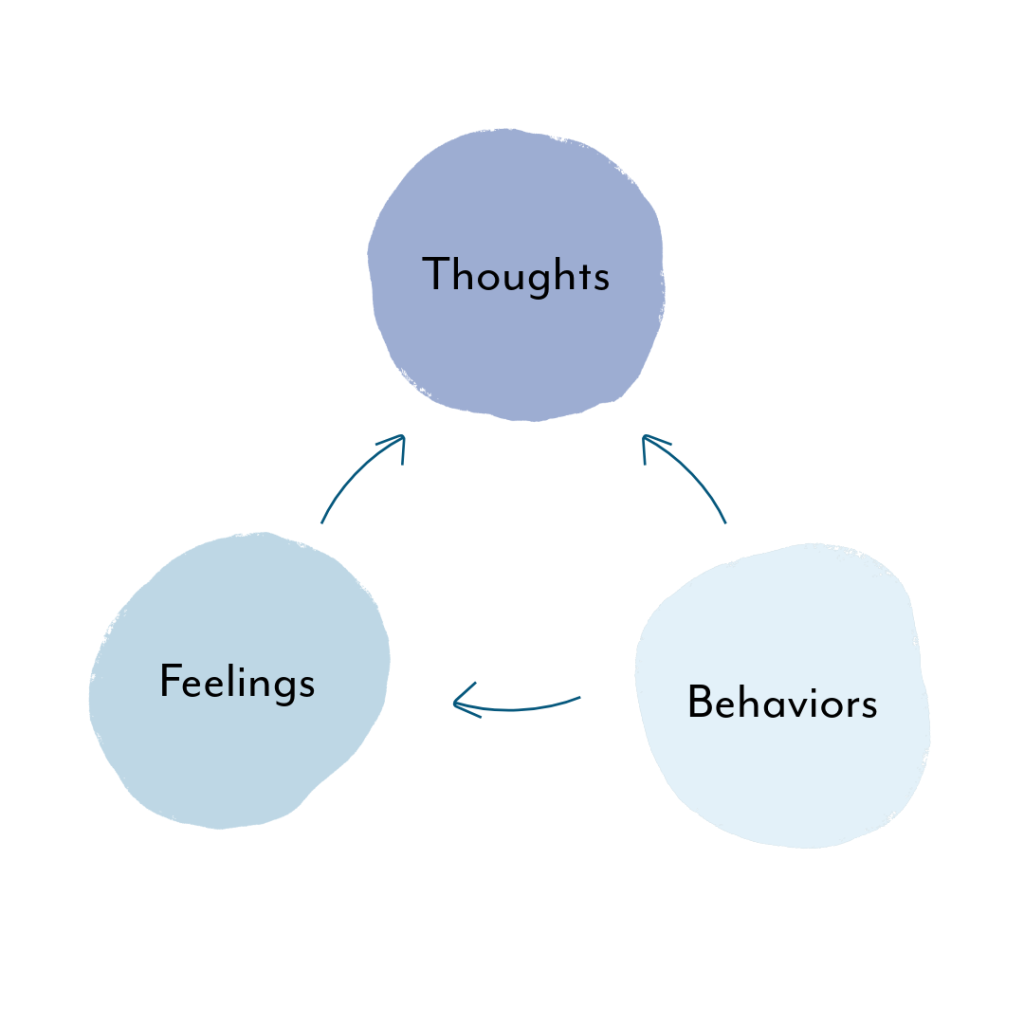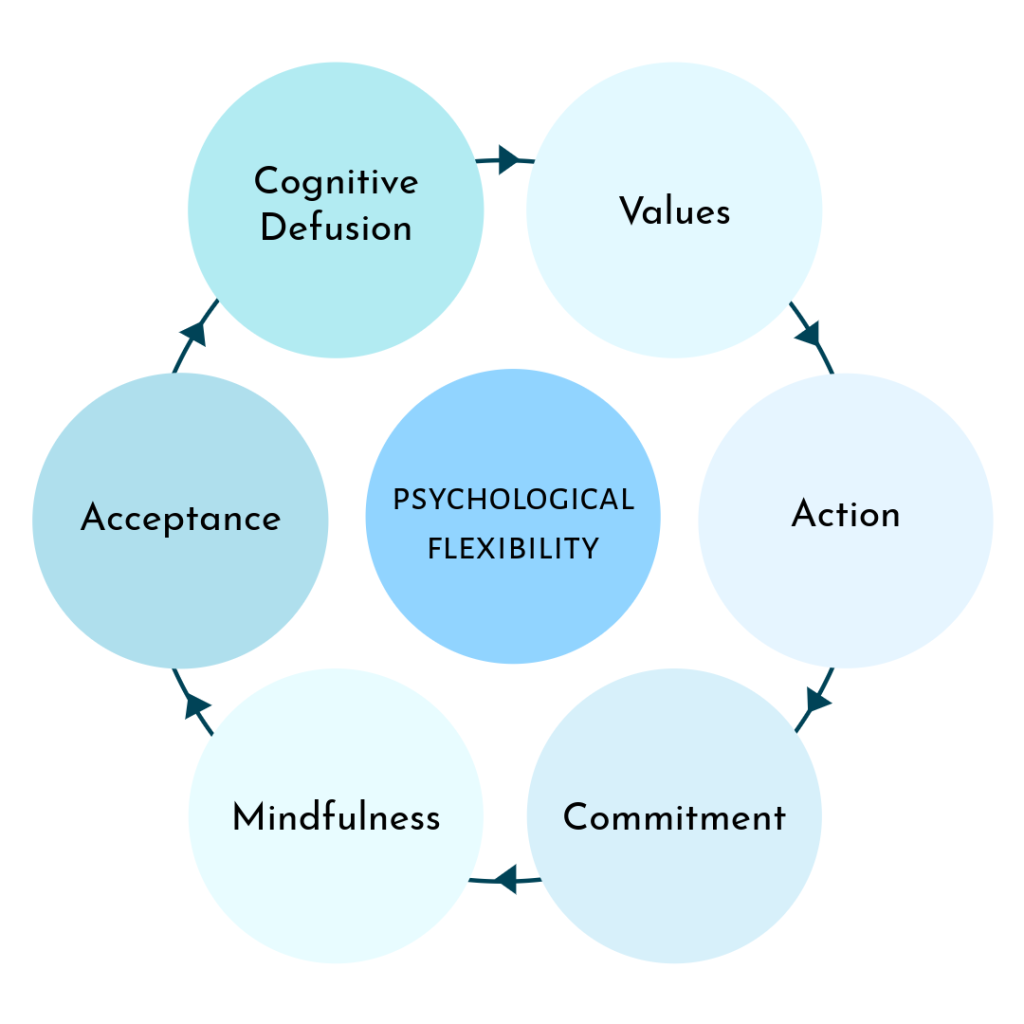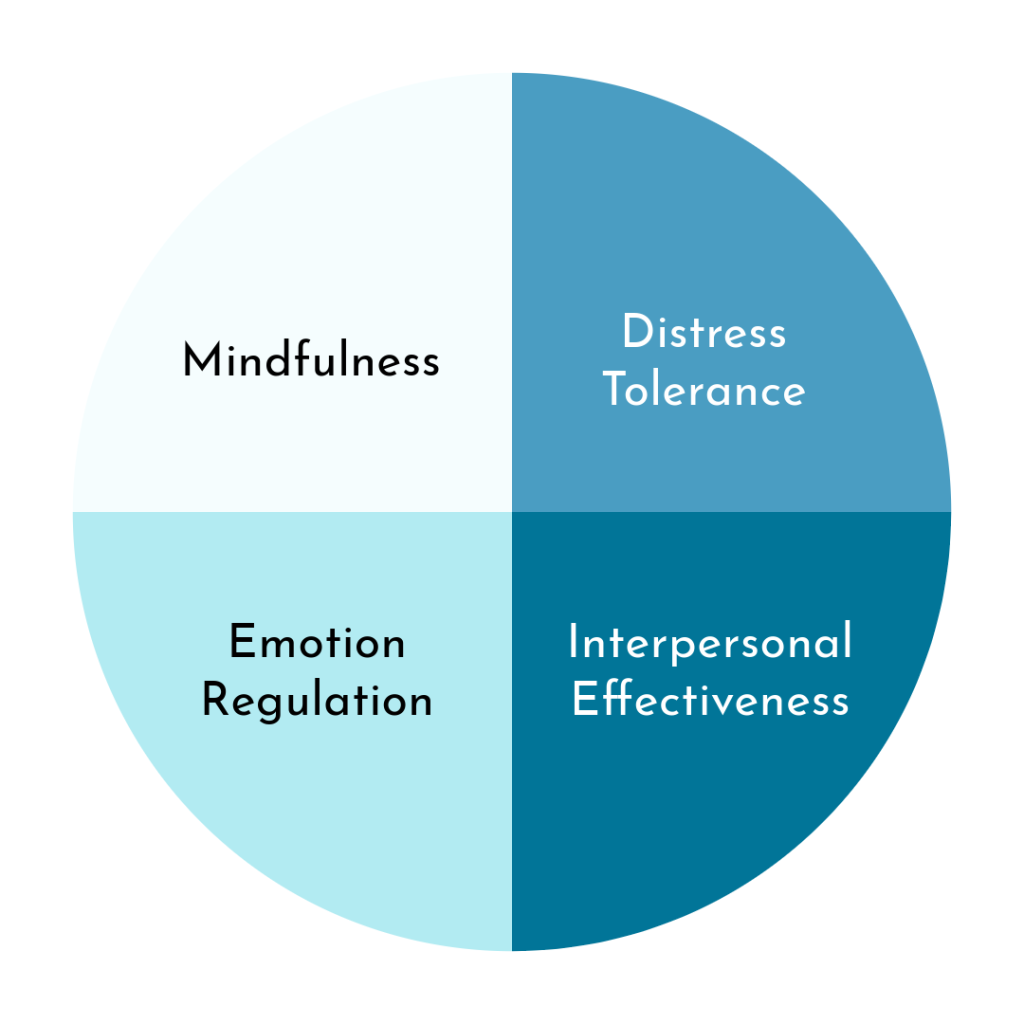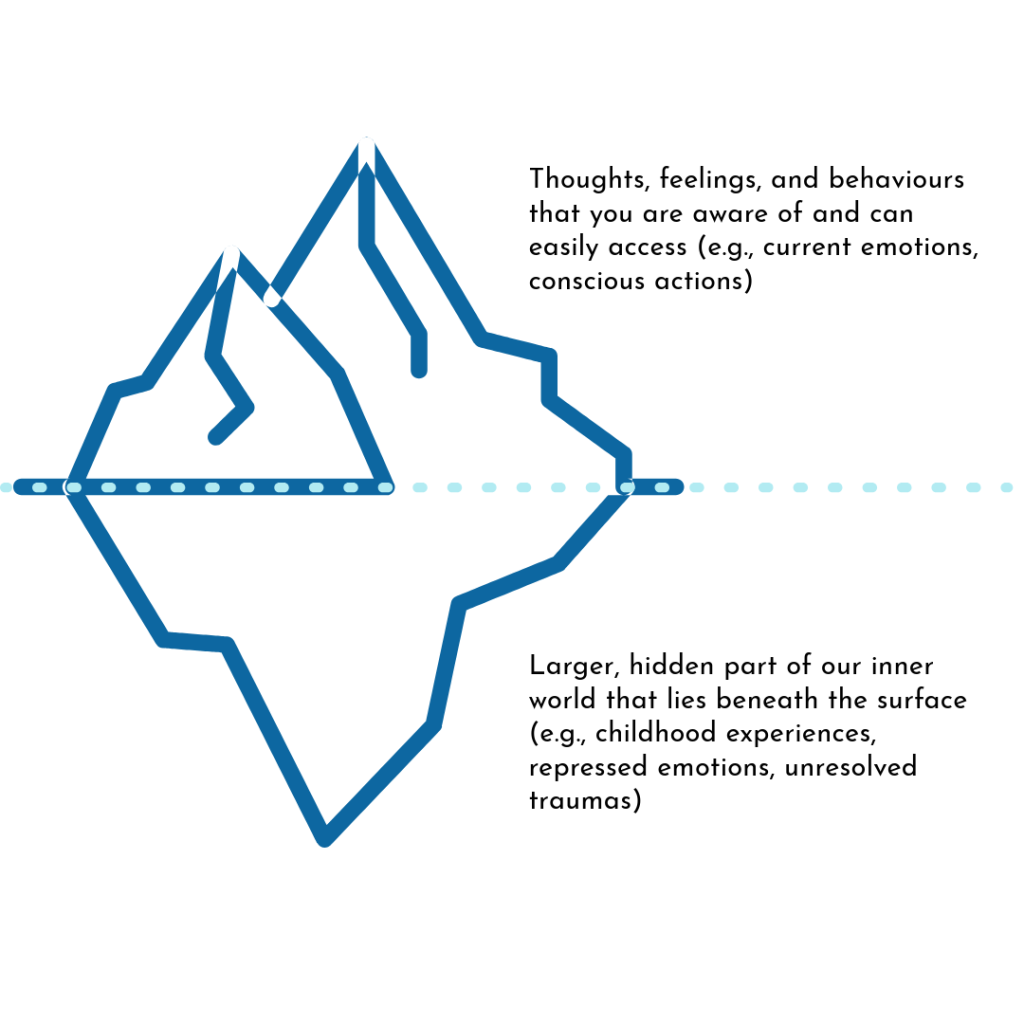
therapeutic approaches

Finding what works
Whether you’re seeking cognitive or behavioral strategies to help you manage anxiety, mindfulness techniques to enhance your wellbeing, or psychodynamic exploration to help you understand deeper patterns, we’ll work together to to find the methods that resonate with you.
My goal is to provide a flexible and personalized approach to ensure your therapy experience is effective and aligned with your goals.
- Cognitive Behavioral Therapy
(CBT) - Acceptance and Commitment Therapy
(ACT) - Dialectical Behavior Therapy
(DBT) - Psychodynamic Therapy
CBT is a practical, goal-oriented approach that helps you identify and change unhelpful thoughts and behaviors. The idea behind this approach is that the way we think and view things affects how we feel and behave.
In CBT, we work on spotting and changing unhelpful thinking patterns so that we can feel and act in more beneficial and positive ways.

ACT is a mindfulness-based approach that focuses on helping you embrace your thoughts and feelings rather than fighting or avoiding them.
ACT encourages you to accept, or make space for, the things that you cannot control while committing to acting in service of your values. The ultimate goal is to enhance psychological flexibility, or the ability to adapt to change, embrace a wide range of thoughts and emotions (both pleasant and unpleasant), and take actions that align with your values, even in the face of discomfort and uncertainty.

DBT combines cognitive-behavioural techniques with aspects of acceptance and mindfulness practices.
The goal is to enhance emotional regulation skills, distress tolerance in the face of challenging situations, increase present moment awareness, and foster healthy, interpersonal relationships.

Psychodynamic therapy is an approach that explores how unconscious processes and patterns of behavior influence a person’s thoughts, emotions, and behaviors.
The goal of psychodynamic therapy is to help individuals gain insight into underlying unconscious conflicts (such as unresolved or repressed emotions like guilt, shame, and internalized expectations) and unresolved issues stemming from past experiences, ultimately leading to a more integrated sense of self and wellbeing.

